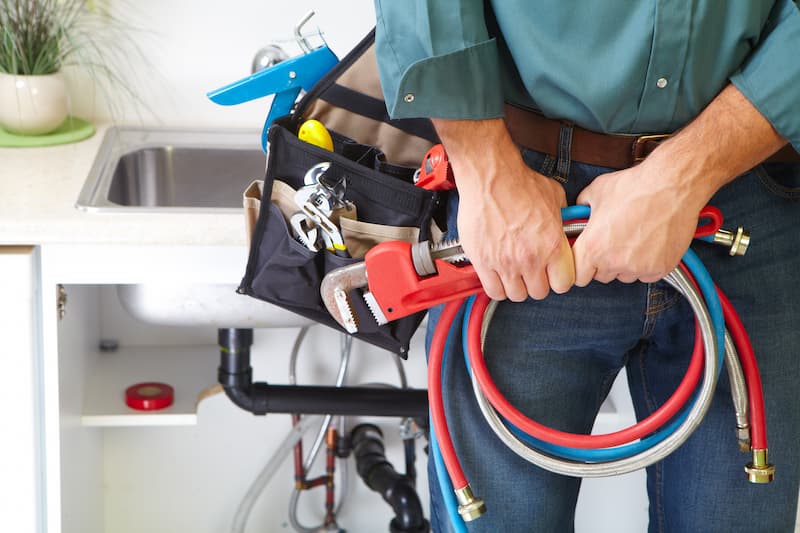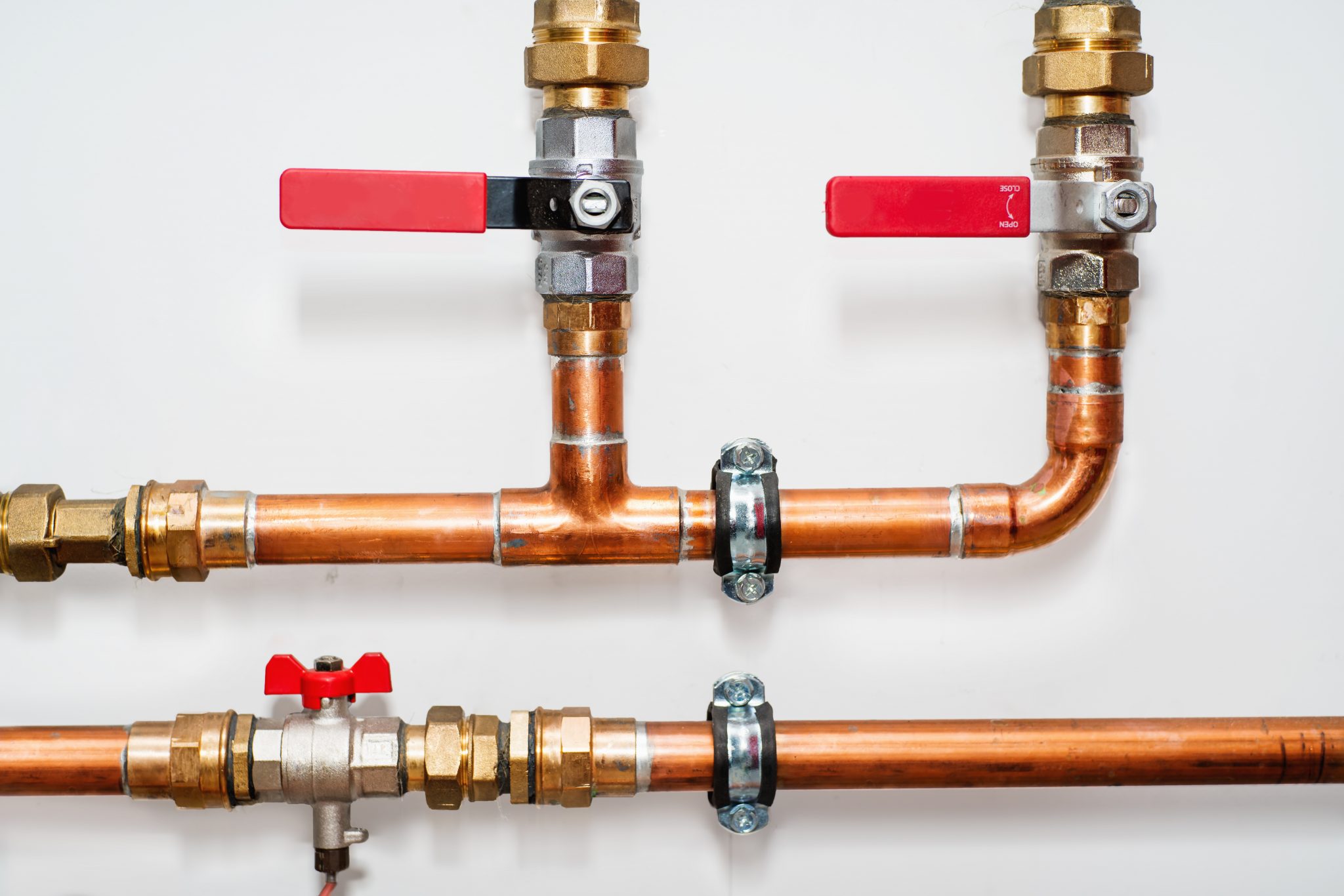Repipe Specialists assist with finding the right piping materials
Why Buying Repiping Providers Is Essential for Your Home's Plumbing Health
Repiping services play an important duty in preserving a home's pipes health and wellness. With time, pipes can corrode, leak, or become clogged up, leading to potential hazards and inadequacies. House owners typically forget the indications of weakening pipes, which can lead to significant damages. Understanding the demand for repiping is vital. What elements should property owners consider before making this financial investment? The answers might shock you.
Recognizing the Importance of Repiping
While lots of homeowners may ignore the significance of repiping, it plays an essential role in keeping the overall health and wellness of a plumbing system. In time, pipes can wear away, create leakages, or end up being blocked with mineral deposits, resulting in decreased water top quality and circulation pressure. Repiping addresses these problems by changing old, broken pipes with brand-new, resilient materials, making certain a trusted water system and lowering the danger of pricey repairs linked with leaks and water damages. In addition, modern-day piping products are frequently more ecologically friendly and efficient, adding to reduced power expenses and boosted water conservation. Carrying out a repiping job can improve a home's resale worth, making it a prudent financial investment for property owners. Ultimately, recognizing the significance of repiping allows house owners to take proactive actions in securing their pipes systems and guaranteeing a secure, useful living environment for their families.
Common Indicators That Suggest the Requirement for Repiping
Homeowners need to be watchful for certain indications that suggest the need for repiping, as neglecting these concerns can result in extra serious plumbing troubles. One usual indicator is the visibility of frequent leaks, which can recommend aging or degrading pipelines. Additionally, an obvious decrease in water stress may indicate clogs or deterioration within the plumbing system. Property owners could additionally observe discolored or corroded water, indicating pipeline degradation. Inexplicable water expenses that are considerably greater than usual can likewise hint at leakages hidden within the wall surfaces. The growth of mold or mold in locations near plumbing components can suggest wetness concerns stemming from damaged pipes. If the home has old galvanized piping, it might be time to believe about repiping, as this material is prone to corrosion and deterioration. Acknowledging these indicators early can assist preserve a healthy and balanced pipes system.
The Dangers of Ignoring Plumbing Issues
Neglecting plumbing issues can cause substantial water damage, which may endanger the architectural integrity of a home. Furthermore, unsolved leakages can create a setting for mold growth, posing serious carcinogen to occupants. Addressing pipes troubles promptly is vital to protect both property and health.
Water Damage Concerns
When plumbing issues go unaddressed, the risk of water damage rises significantly. Leakages, leaks, and cracks in pipes can bring about considerable water intrusion, jeopardizing the architectural honesty of a home. In time, even minor leakages can create rot, mold and mildew growth, and damages to walls and floor covering, causing pricey repair work. Water damages can additionally impact electric systems, producing dangerous conditions. Home owners usually take too lightly the collective effect of tiny leakages, which can result in prevalent damages if not without delay attended to. Disregarding plumbing concerns not just enhances the probability of prompt damage yet can also decrease building worth and present long-lasting economic problems. Therefore, prompt repiping solutions are important to protect against water damage and keep a healthy home setting.
Health Hazards Rise
Unresolved plumbing issues can bring about significant health and wellness risks within a home. Polluted water from corroded pipes can introduce hazardous germs and lead to major ailments. Mold and mildew development, frequently a result of leakages and excess moisture, positions respiratory dangers and can cause allergies. In addition, stagnant water can attract pests such as insects and rodents, which lug illness that even more endanger household health. Neglecting these pipes troubles not just compromises the safety of locals but can likewise diminish residential or commercial property value. Dealing with pipes problems via repiping services is important. Timely intervention not only safeguards wellness however also assures a secure living setting, avoiding more extensive damage and pricey repairs down the line.
Different Types of Piping Materials
Piping materials are a crucial part in pipes systems, influencing resilience, effectiveness, and overall performance. Various choices are available, each with unique buildings and applications. Copper piping is recognized for its longevity and resistance to rust, making it a prominent option for both cold and warm water lines. PVC (polyvinyl chloride) is lightweight, cost-effective, and resistant to chemical damage, largely utilized for drain and vent systems. PEX (cross-linked polyethylene) has acquired appeal due to its flexibility and convenience of installation, permitting less joints and potential leak points. Galvanized steel, though when usual, is much less beneficial today as a result of its sensitivity to rust and decreased water flow in time. Each material offers distinct advantages and disadvantages, making it vital for homeowners to seek advice from with plumbing experts to determine the most ideal option for their particular requirements and problems. Selecting the best piping product can substantially affect the efficiency and safety and security of a plumbing system.
The Repiping Process: What to Anticipate
The repiping process begins with a thorough assessment of the existing pipes to determine problems and determine the best course of action. Following this assessment, house owners will require to pick suitable replacement products that match their pipes requires. Ultimately, an introduction of the installation process will offer understandings into what to anticipate throughout this substantial home improvement.
Assessment of Existing Pipelines
An exact evaluation of existing pipelines is essential for guaranteeing the long-lasting health of a plumbing system. This analysis entails inspecting the materials, age, and condition of the pipelines, as well as identifying any indications of rust, leaks, or obstructions - here Houston Repipe. Expert plumbing professionals frequently use advanced strategies such as video clip assessments to acquire a clear sight of the pipe's interior without invasive procedures. By identifying issue locations early, homeowners can prevent further damages and pricey fixings in the future. Furthermore, comprehending the current state of the plumbing infrastructure help in making informed choices relating to necessary upgrades or repiping. In general, a detailed analysis acts as the foundation for a successful repiping procedure, making sure that the brand-new system fulfills the home's details requirements
Choosing Substitute Materials
After assessing the existing pipes, property owners encounter the essential choice of choosing appropriate replacement products for their plumbing system. Usual alternatives consist of copper, PVC, PEX, and CPVC, each with unique benefits and drawbacks. Copper is recognized for its sturdiness and resistance to rust, making it a lasting selection. PVC is light-weight and affordable, ideal for drain and air vent lines. PEX supplies flexibility and is immune to range and chlorine, making setup simpler in limited areas. CPVC is similar to PVC yet can hold up against greater temperature levels. Home owners should think about elements such as budget plan, local structure codes, and the specific requirements of their pipes system when making this decision, making certain suitable efficiency and durability for their home's pipes framework.
Setup Refine Summary
Repiping a home can be a significant endeavor, yet recognizing the installation procedure aids homeowners get ready for what lies in advance. The procedure usually starts with an extensive examination of the existing plumbing system to determine issue areas. Next off, an in-depth strategy is developed, laying out the required materials and timelines. On the setup day, specialists will frequently start by closing off the water supply and draining pipes the existing pipelines. They after that eliminate the old piping, which may include opening walls or ceilings for gain access to. New pipelines are set up, ensuring they meet existing pipes codes. Ultimately, the system is evaluated for leaks, and any type of openings are fixed. Home owners can expect a tidy and efficient procedure, decreasing disruption to their lives.
Long-Term Benefits of Repiping Your Home
While several homeowners might neglect the importance of updating their pipes, the long-term advantages of repiping a home can significantly improve both its value and capability. Among the main advantages is boosted water top quality. Older pipes may harbor contaminants and rust, while brand-new piping assurances tidy and safe water shipment. In addition, repiping can result in increased water pressure, making everyday tasks more efficient.

How to Pick the Right Pipes Service for Repiping
How can home owners ensure they pick the finest plumbing solution for repiping? They should research click here local plumbing firms, concentrating on those that specialize in repiping services. Repiping. Reviewing on the internet reviews and testimonials can give insights right into the top quality of service offered. It's vital to look for appropriate licensing and insurance, making certain the chosen business adhere to regional laws
Homeowners must also ask for detailed quotes from several service providers to contrast prices and solutions supplied. Engaging directly with possible plumbing technicians can help evaluate their expertise, communication skills, and desire to address inquiries. Furthermore, requesting references from previous customers can validate a business's reliability and craftsmanship.
Property owners ought to consider the firm's guarantee plans on materials and labor, as this can show their dedication to quality. By complying with these standards, property owners can make an enlightened choice, protecting their pipes health with efficient repiping services.
Regularly Asked Concerns
The length of time Does a Common Repiping Task Take to Complete?
A typical repiping project usually takes between one to 5 days to complete, depending on the dimension of the home and complexity of the plumbing system. Proper preparation and service provider experience can influence general duration considerably.
Will Repiping Increase My Home's Resale Worth?
Repiping often enhances a home's resale worth, as potential customers value updated plumbing systems. This improvement lowers potential pipes concerns, making the residential or commercial property a lot more eye-catching and potentially justifying a higher asking rate during sale arrangements.
Can I Remain in My Home During Repiping?
Throughout repiping, remaining in the home is frequently possible, but it may depend on the extent of the job. Property owners must get ready for momentary disruptions and speak with service providers for particular plans and security considerations.
What Is the Ordinary Price of Repiping a Home?
The average expense of repiping a home typically ranges from $4,000 to $15,000, depending on variables such as the dimension of your house, products used, and labor costs connected with the plumbing work. - Houston Repiping
Do I Required a License for Repiping Services?
An authorization is commonly required for repiping services, as it guarantees conformity with regional structure codes and guidelines. House owners need to consult their neighborhood authority or a licensed plumbing technician to figure out specific permitting demands for their area.
